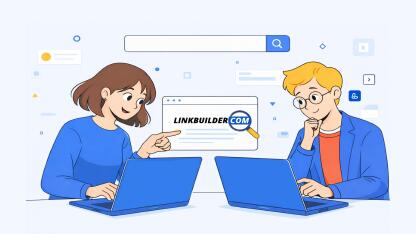Imagine: you’re reading an article that genuinely interests you, when suddenly, you come across a link within the text. But instead of feeling out of place or forced, it naturally blends into the content, providing additional valuable insights.
This is a contextual link, one of the most powerful yet often underestimated SEO tools.
But why are they so important?
Why does Google value them so highly?
Can a few well-placed links really impact your website’s ranking in search results?
When used correctly, contextual links can improve your SEO, enhance your website’s credibility, drive more traffic, and strengthen your authority within your niche.
However, you need to understand their actual value to maximize their impact.
In this blog, we’ll cover:
- ✅ What contextual links are and how they work.
- ✅ Why are they essential for SEO and Google rankings?
- ✅ The key benefits of contextual backlinks and their impact on your website.
If you want your website not just to exist but to thrive and dominate search results, this guide is for you.
Keep reading and you’ll learn everything you need to master contextual link building!
Understanding Contextual Links
A contextual link is a hyperlink naturally embedded within the body of a relevant and authoritative webpage.
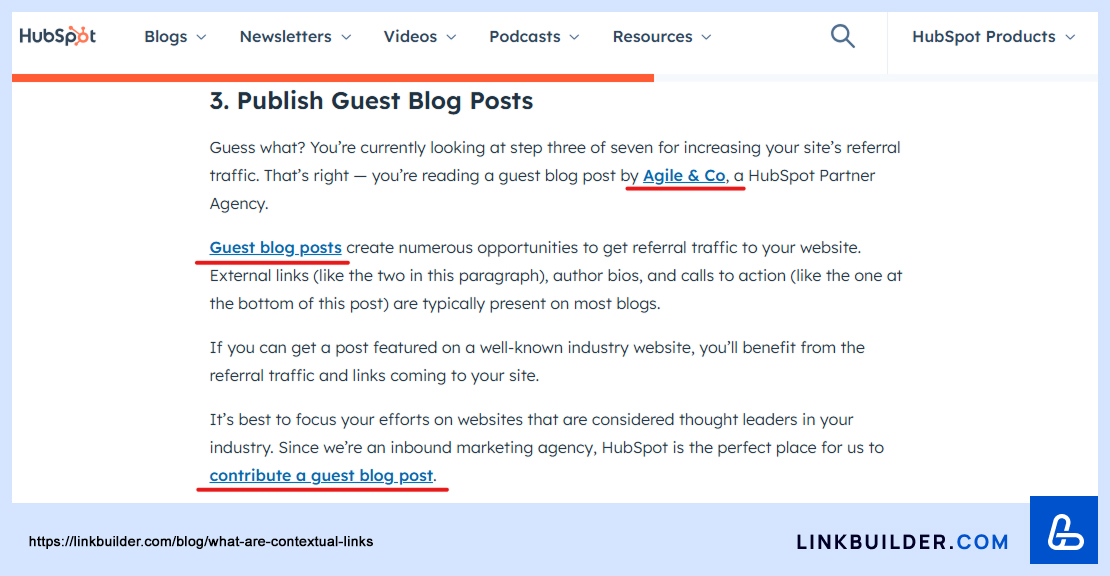
Unlike links found in sidebars or footers, contextual links are surrounded by meaningful content that aligns with the topic of the linked page.
These links serve two key purposes:
- ✅ For users, they enhance the reading experience by providing additional, relevant information that complements the existing content.
- ✅ For SEO, they pass authority from the linking site to the destination page, helping improve search engine rankings and organic traffic.
To be truly effective, contextual linking should be placed within high-quality, thematically related content.
When implemented correctly, they improve a site's visibility in search results and establish credibility and trust with both users and search engines.
What About Non-Contextual Links?
While contextual links integrate naturally into content, non-contextual links exist outside of it.
They are typically placed in sidebars, footers, or standalone buttons with vague anchor text like "click here."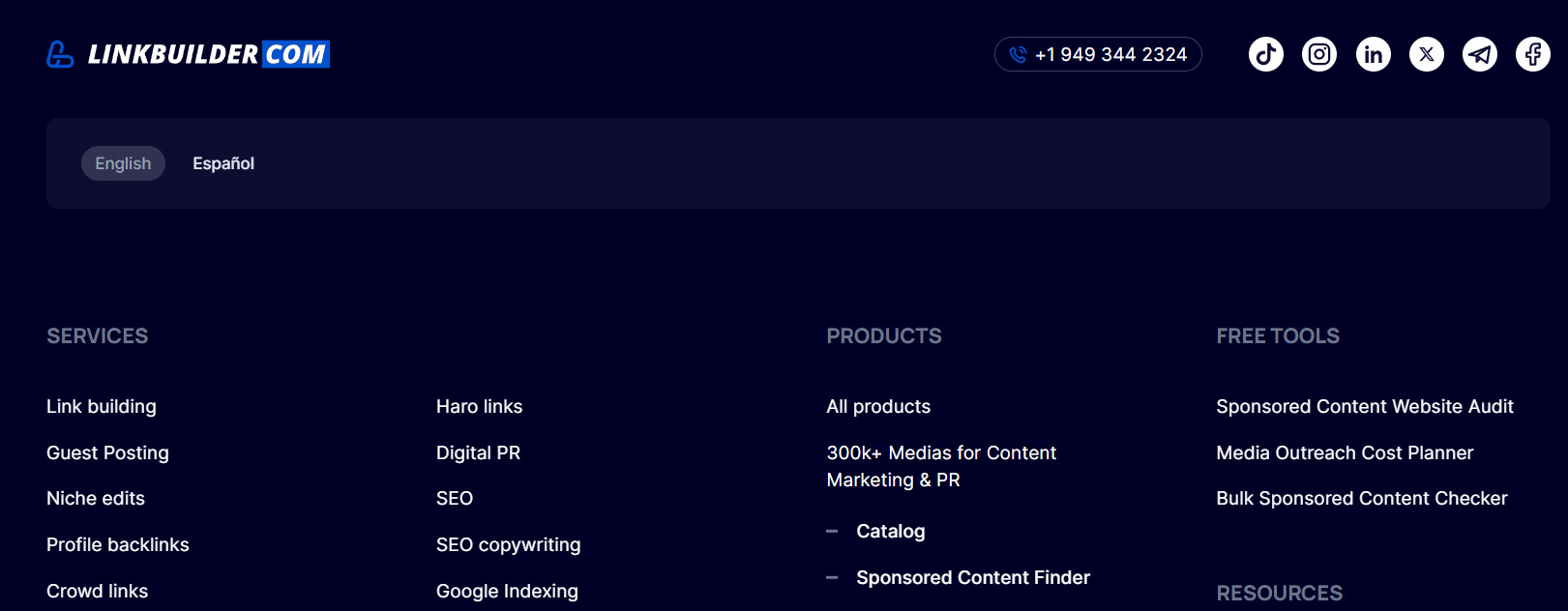
Unlike contextual links, non-contextual links don’t naturally contribute to the content’s meaning or flow.
This distinction matters because search engines prioritize links that appear naturally within relevant content.
Contextual backlinks help Google understand the relationship between pages, making them an influential ranking factor.
Non-contextual links, on the other hand, lack this contextual relevance, which reduces their SEO impact.
For example, a contextual link within a digital marketing article leading to an in-depth SEO guide is highly valuable.
In contrast, a non-contextual link buried in a website’s footer with no surrounding context provides little benefit to search engines or users.
By prioritizing contextual links over non-contextual ones, websites can strengthen their authority, improve search rankings, and enhance the overall user experience.
How Contextual Links Work
Now that we understand what are contextual links and how they differ from non-contextual links, let’s explore how they function and why they are so effective in SEO and user experience.
Seamless Integration into Content
Contextual links are designed to blend naturally into a webpage’s content flow, making them intuitive and user-friendly.
Unlike links placed in footers or sidebars, which often feel disconnected from the main topic, contextual backlinks are strategically embedded within relevant text, guiding users to additional helpful information.
Placing contextual links within meaningful sentences doesn’t disrupt the reader’s experience. Instead, they enhance comprehension by connecting readers to relevant sources, allowing them to dive deeper into the subject matter without feeling forced to be redirected.
Best Practices for Implementing Contextual Links
To ensure contextual links are both practical and natural, follow these key guidelines:
- ✅ Use Relevant Anchor Text – Choose meaningful keywords or phrases that indicate the linked page’s topic.
- ✅ Link to Relevant Pages – Ensure the destination page provides additional insights and directly relates to the context.
- ✅ Maintain Natural Integration – Contextual linking should fit seamlessly into the text without appearing forced or disruptive. They should feel like an organic part of the narrative, enhancing rather than interrupting the reading flow.
Impact on Users
Contextual links enhance user experience by:
- ✔️ Providing quick access to supplementary content.
- ✔️ Improving navigation, allowing users to explore related information effortlessly.
- ✔️ Increasing engagement, keeping visitors on your site longer, and reinforcing credibility.
Contextual links are more than just a way to pass SEO value; they are essential for improving user experience, guiding readers naturally through content, and increasing website credibility.
By strategically implementing them, websites can create a more engaging and informative experience for their audience.
Why Contextual Links Matter for SEO

Beyond improving user experience, contextual links are a cornerstone of modern SEO.
Search engines like Google rely on them to understand how web pages relate to one another, distribute ranking power, and determine a site’s authority.
Helping Search Engines Understand Content
Google’s algorithms analyze what is a contextual link to determine the subject matter of linked pages.
When a web page includes a contextual link with descriptive anchor text, it provides search engines with additional information about the destination page’s content. This helps Google accurately categorize and rank pages for relevant search queries.
For example, an SEO strategy blog linking to a keyword research guide tells Google the two topics are connected.
This contextual connection increases the chances of both pages ranking higher in search results.
Distributing Link Equity
Contextual links help transfer ranking power (link equity) between pages. A high-authority page linking to another relevant page boosts the latter’s ability to rank.
Internal contextual linking can strengthen underperforming pages by directing authority from more substantial content.
Increasing Credibility and Authority
Backlinks from reputable, high-quality websites serve as endorsements, signaling trust and credibility to search engines. The value of contextual links seo becomes clear when examining:
- 🔹 Contextual backlinks carry more weight than links in footers, sidebars, or unrelated pages.
- 🔹 Google views these links as organic recommendations, making them more valuable for ranking purposes.
- 🔹 A well-placed contextual link from an industry-leading site can significantly improve your domain authority and search visibility.
Enhanced User Engagement
From a user perspective, contextual links make navigation effortless. They immediately guide readers to additional content, keeping them engaged with relevant information.
This leads to:
- ✔️ Lowering bounce rates – Keeping users on your site longer.
- ✔️ Increasing dwell time – Google tracks page time spent as a ranking factor.
- ✔️ Improving satisfaction – Helping visitors find what they want without leaving the site.
Contextual links are a powerful SEO tool influencing rankings, authority, and user engagement. By focusing on quality contextual link building, websites achieve better search visibility while maintaining natural user experiences.
Benefits of Using Contextual Links

- Enhanced User Experience Through Contextual Links
Strategically placed contextual links create a seamless browsing experience, guiding users to additional relevant information. This keeps them engaged and improves content navigation.
Naturally integrating contextual links allows visitors to explore topics in greater depth without effort, making the website more user-friendly and authoritative. For businesses looking to scale their efforts, contextual link building services can provide professional implementation while maintaining this natural flow.
- Strengthening Website Trust and Authority
Contextual links help build a website’s credibility. When authoritative sites reference your content within their text, it signals expertise to search engines and users alike.
Unlike random backlinks, contextual links from well-established sources demonstrate that your content is valuable. The more high-quality contextual backlinks service placements your site earns, the stronger its perceived authority, helping it stand out as a trusted resource.
- Expanding Brand Recognition Through Contextual Links
Contextual links do more than boost SEO. They establish your brand as a trusted authority. When reputable websites reference your content within relevant discussions, it reinforces your credibility and signals to users and search engines that your insights are valuable.
Earning contextual backlinks consistently from high-quality sources increases your brand’s visibility. Readers encountering your website across multiple trusted platforms are more likely to recognize and remember it, strengthening brand awareness.
Additionally, contextual links naturally drive potential customers to your site, improving engagement and increasing conversion opportunities. Over time, this exposure fosters trust and positions your brand as a leader in your niche.
- More Referrals
While contextual links primarily serve as an SEO tool, they also provide opportunities for referral traffic.
Unlike generic backlinks, contextual links are embedded within relevant content, making them more likely to attract clicks from engaged readers.
However, not all contextual links generate substantial traffic.
The best results come from placements within viral content, niche communities, and industry-specific listings where users actively seek recommendations. When properly utilized, these links can drive highly targeted visitors to your website; people who are already interested in your topic and more likely to engage with your content or services.
By focusing on strategic link placements, brands can maximize their referral potential while strengthening their presence within industry-related discussions.
- Exponential Link Growth
Contextual links don’t just bring direct traffic - they also create opportunities for natural backlink acquisition.
When industry professionals, bloggers, or journalists discover valuable content through well-placed contextual links, they are more likely to reference it in their publications.
Since these links appear in highly relevant contexts, they attract the right audience - people already interested in the topic.
If your content is insightful and authoritative, it can inspire further citations, leading to a steady and organic expansion of your backlink profile.
Over time, this snowball effect strengthens your site’s visibility and authority, making attracting even more quality links easier.
- Strengthening Your Link Profile
A well-developed link profile is key to gaining search engine trust and improving rankings.
Contextual links contribute to a stronger link profile by ensuring backlinks are naturally embedded within relevant content, making them more valuable than generic or randomly placed links.
Search engines prioritize link quality over quantity, and contextual links help establish a more organic and authoritative backlink profile.
When your site earns links from reputable sources within meaningful content, it signals credibility and expertise. A well-structured link profile built on relevant contextual links enhances SEO performance and fosters long-term website growth.
- Boosting Search Rankings
Unlike low-quality backlinks that can lead to penalties, well-placed contextual links signal relevance and authority, helping pages rank higher over time.
Search engines evaluate links based on context, not just metrics like domain rating. Prioritizing link quality and relevance over sheer quantity ensures that your rankings remain stable and resistant to algorithm changes. By consistently earning contextual links from reputable sources, websites can build sustainable search visibility and long-term SEO success.
- Enhancing Social Media Engagement
Strategic contextual links can drive social media engagement by encouraging users to share and interact with content. When relevant links are seamlessly integrated into high-quality content, they provide value to the audience and are more likely to be shared across social platforms.
Collaborating with industry influencers, bloggers, and authoritative sites amplifies this effect, increasing visibility and fostering trust.
Well-placed contextual links strengthen a website’s credibility and generate organic discussions, driving more traffic from social media channels.
By prioritizing relevant and ethical linking practices, brands can expand their digital presence and cultivate an engaged online community.
Types of Contextual Links

Contextual links can be categorized into three main types:
- Internal
- External
- Inbound
Each type serves a distinct purpose in enhancing website navigation, authority, and SEO performance.
Understanding what are contextual backlinks and how these links function allows website owners to develop a strategic linking approach that benefits users and search engines.
Below, we’ll explore the unique role of each type and how they contribute to a well-optimized site.
Internal Contextual Links
Internal contextual links are hyperlinks within a website that connect one page to another relevant page on the same domain.
Below you can find an example of internal contextual links on our LinkBuilder.com blog.
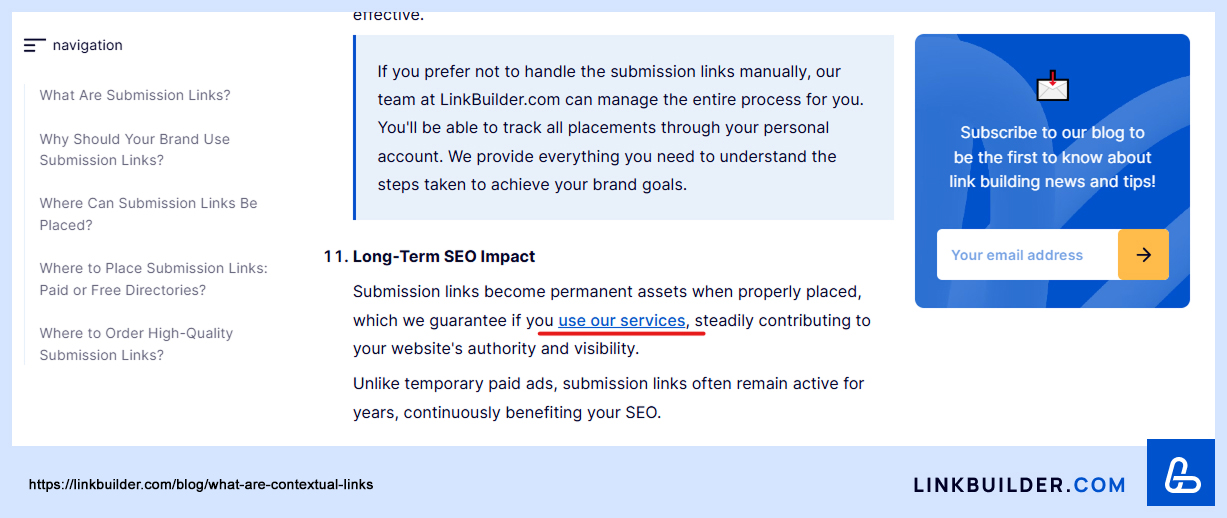
These links help users navigate seamlessly between related content, enhancing their experience and encouraging them to explore more pages.
For example, if an article references a topic covered in another blog post on the same site, adding an internal contextual link gives readers easy access to further insights. This improves user engagement and strengthens the website’s structure, making it easier for search engines to crawl and index content effectively.
By strategically placing internal contextual links, website owners can guide visitors toward valuable resources while reinforcing the authority of key pages.
External Contextual Links
External contextual links, or outbound links, direct users from your website to an external source.
Here is an example of external contextual links in our blog about Semrush platform:
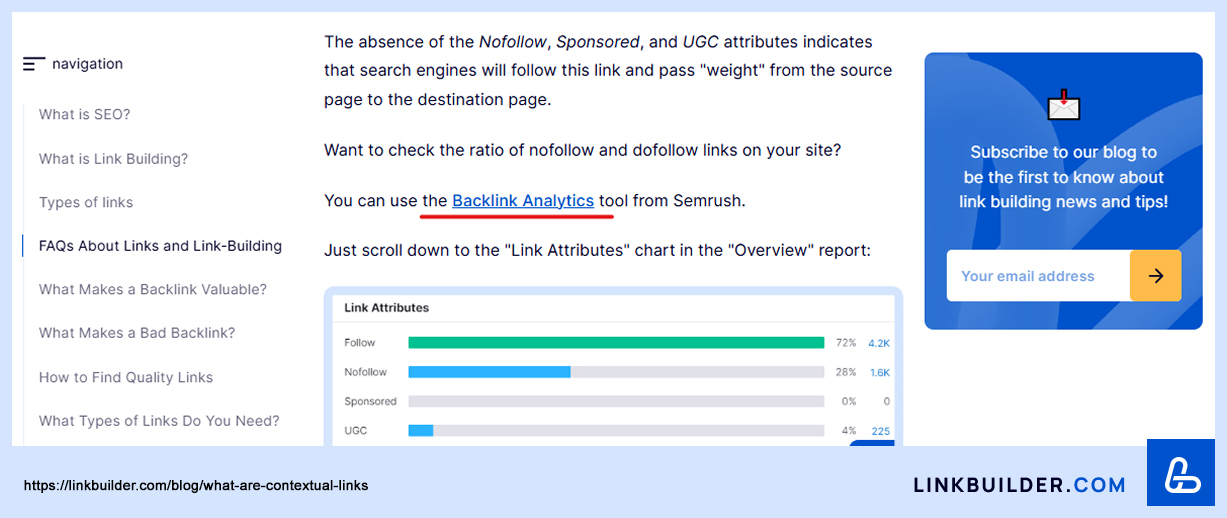
These links are typically used to provide additional resources, cite references, or enhance the credibility of your content by connecting it to authoritative sites.
While some may worry that external links lead visitors away from their site, they play a vital role in creating a well-rounded user experience.
When used strategically, external links improve content quality and show search engines that your site contributes to a broader information network. You demonstrate expertise and build trust with users and search engines by linking to relevant, high-authority sources.
External contextual links should be placed naturally within content for maximum impact, leading to pages that add value.
Selecting sources wisely ensures that your site remains a trusted resource while fostering connections within your niche.
Inbound Contextual Links
Inbound contextual links are hyperlinks from other websites that direct users to your pages. These links are crucial in establishing your website’s authority and trustworthiness.
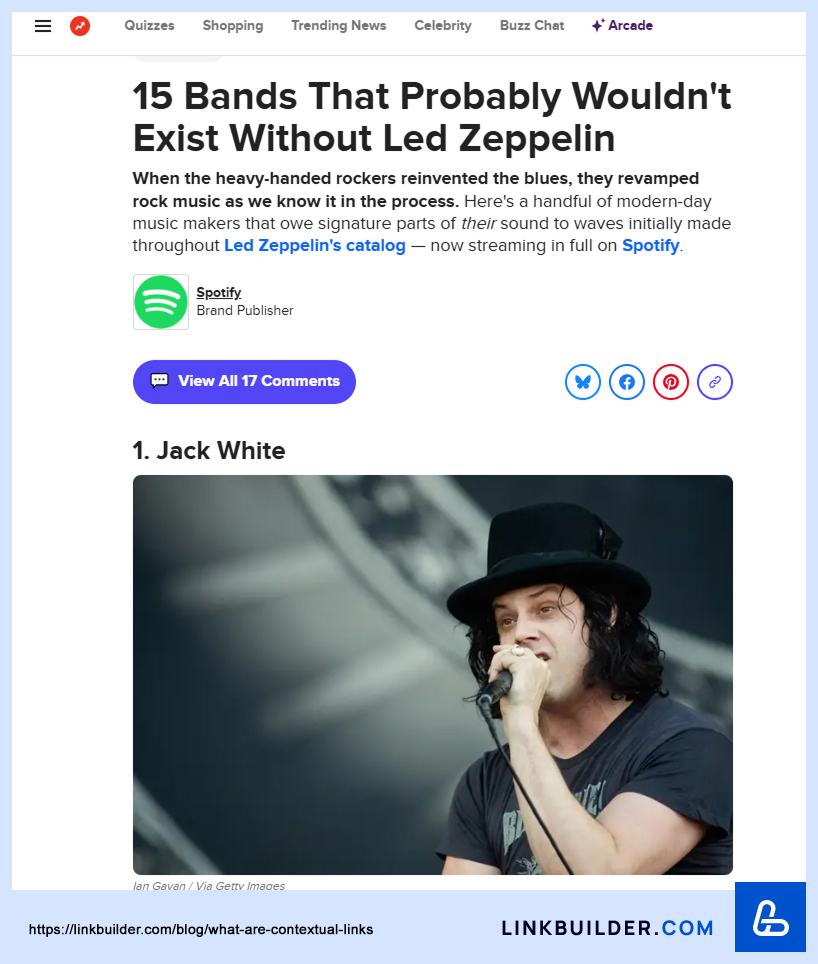
When authoritative sites link to your content within their relevant articles, search engines recognize your page as a valuable resource. This can positively influence your website’s visibility and credibility.
Unlike internal or outbound links, inbound links serve as independent endorsements, signaling to search engines that your content is worth referencing.
To attract quality inbound links, focus on creating contextual links seo-optimized content that naturally earns citations. Industry research, expert insights, and well-structured guides are more likely to receive these links, strengthening your website’s overall influence.
How to Create Effective Contextual Links

Contextual links are powerful tools for improving search engine rankings, driving organic traffic, and enhancing credibility. However, their effectiveness depends on how they are implemented.
Instead of simply inserting links, the focus should be on strategies that enhance user experience, add value, and align with search engine best practices.
Below are the most effective methods to build strong contextual backlinks that will benefit your site in the long run.
1. Create High-Quality, Engaging Content
Content is the foundation of any successful contextual link building strategy. Websites naturally link to informative, engaging, and well-researched content that provides value to their audience. For those considering to buy contextual links, remember that quality content is what makes links valuable.
Consider the following types of content to attract contextual backlinks:
- Guides and Tutorials: In-depth articles covering specific topics that offer step-by-step instructions.
- Infographics: Visually appealing content that simplifies complex data, making it highly shareable.
- Research and White Papers: Original studies or detailed reports that showcase expertise and attract authoritative links.
- Expert Roundups: Featuring insights from industry experts increases credibility and encourages backlinks.
2. Optimize Anchor Text for Relevance
Anchor text plays a crucial role in how search engines interpret links. Using keyword-rich and contextually relevant anchor text helps search engines understand the relationship between linked pages. However, it’s crucial to maintain a natural balance; over-optimization can lead to penalties.
Instead of using generic anchor text like “click here,” opt for descriptive and keyword-relevant phrases.
For example, in an article about digital marketing, a link with anchor text like “effective SEO strategies” leading to a related blog post is more beneficial than a vague term.
3. Broken Link Building
Broken link building is an effective way to earn contextual backlinks by replacing outdated or broken links on other websites with your own relevant content. Some businesses opt for a monthly contextual backlinks service to maintain consistent results from this strategy.
- Find broken links: Use SEO tool like Ahrefs to identify broken links on high-authority websites in your niche.
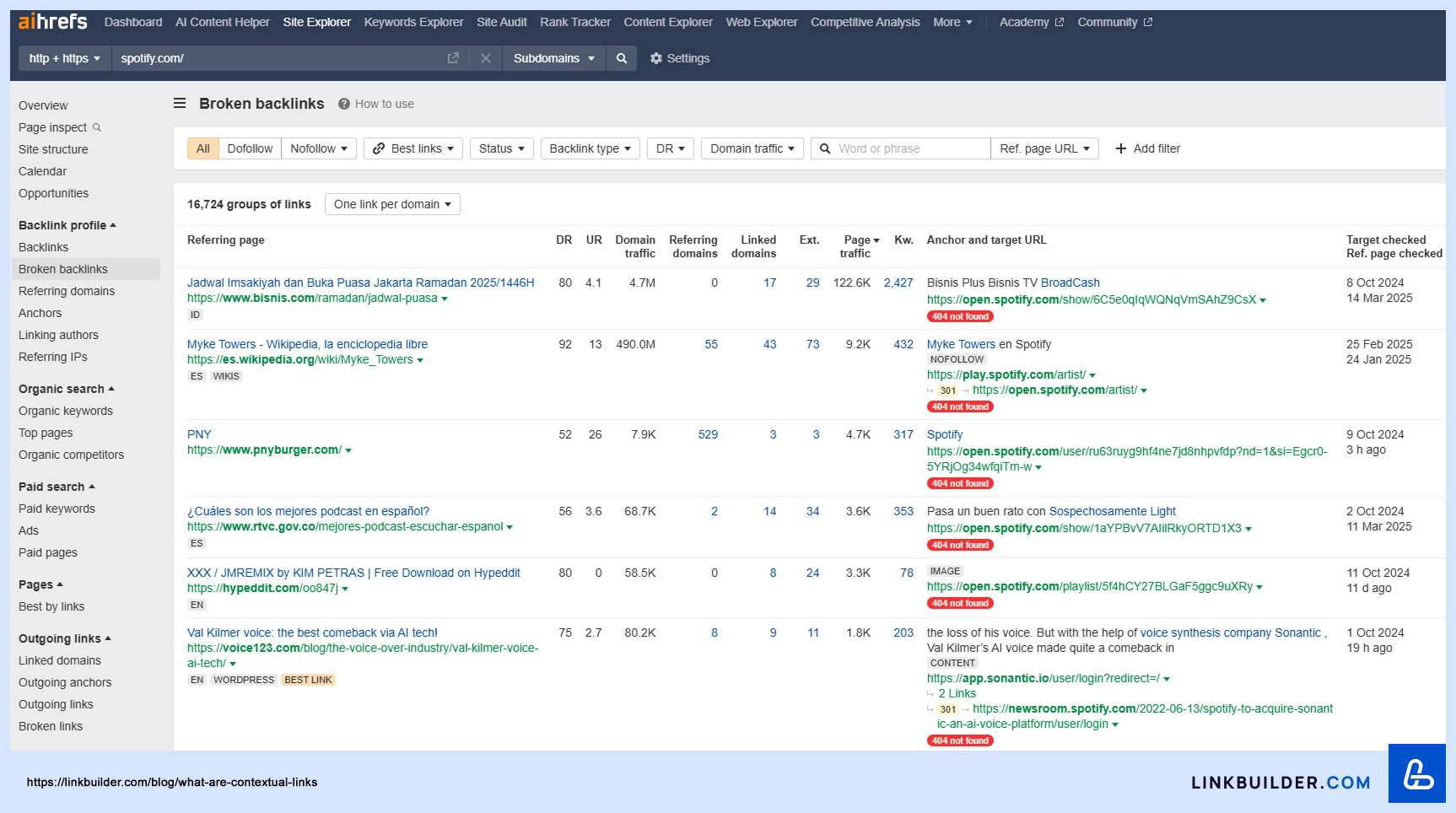
This tool help locate outdated or non-working links that you can replace with relevant content, earning contextual backlinks in the process.
Ahrefs provides a powerful tool called Site Explorer, which allows you to locate broken backlinks on authoritative websites. Here’s how to do it:
- Open Site Explorer in Ahrefs.
- Enter the URL of your website in the search field.
- In the left-hand menu, find and select “Broken backlinks”.
- This report will display all broken external links pointing to your site.
- Note: To access the broken backlinks search feature, you will need a paid subscription to Ahrefs.
- Create replacement content: Develop a well-structured, informative page that can serve as a suitable replacement.
- Outreach to website owners: Notify site owners about the broken link and suggest your content as an alternative.
This method benefits both parties; you gain a backlink, while the website owner improves their user experience by fixing broken links.
4. Maintain a Balance Between Internal and External Links
Both internal and external links contribute to a strong contextual linking strategy. Internal links help distribute link equity across your website, guiding users to relevant content while improving site navigation. They also assist search engines in understanding site structure and page relevance.
External links, on the other hand, demonstrate credibility and authority. Linking to reputable sources signals to search engines that your content is well-researched and reliable. However, it’s essential to ensure that these external links come from authoritative and relevant sources to avoid any negative SEO impact.
5. Guest Blogging with Contextual Links
Guest blogging remains a powerful way to build contextual backlink when done correctly. Instead of focusing solely on author bio links, ensure that relevant contextual links are placed naturally within the content.
- Target reputable websites in your niche.
- Provide high-value, well-written content.
- Integrate contextual links naturally within the body of the article.
A good contextual backlinks service will help you identify the right opportunities for guest posting in your niche.
6. Content Curator Outreach
Content curators compile and share valuable resources within their niche. Getting your content featured in curated lists or resource pages can generate high-quality contextual backlinks that align with context seo best practices.
- Identify content curators in your industry.
- Reach out with a compelling pitch about why your content adds value.
- Engage with curators on social media to build relationships.
7. Resource Pages and Roundup Posts
Many websites publish “best of” lists, weekly roundups, or recommended resource pages. Getting your content featured in these sections can drive traffic and generate strong contextual backlinks.
- Find niche-specific roundup posts and resource lists.
- Submit your best-performing content for consideration.
- Ensure your content is relevant and genuinely valuable to their audience.
8. Interviews and Expert Contributions
Being featured in interviews or contributing expert opinions to industry blogs can help secure authoritative contextual backlinks.
- Participate in podcasts or video interviews.
- Offer expert insights on trending topics in your field.
- Engage with reporters and bloggers seeking industry commentary.
9. Focus on Link Quality Over Quantity
When it comes to contextual link building, quality outweighs quantity.
A single well-placed link from an authoritative website holds more value than multiple links from low-quality sources.
Instead of pursuing mass link acquisition, prioritize securing contextual links from industry-leading sources.
Links from reputable websites improve domain authority and enhance organic search rankings, making them a vital part of an effective SEO strategy.
10. Monitor and Maintain a Healthy Backlink Profile
Regularly auditing your backlink profile ensures that your contextual link-building efforts remain effective.
Tools like Ahrefs or Moz help track backlinks and identify any potentially harmful or irrelevant links that could negatively impact your site’s SEO.
By continuously monitoring your backlinks, you can refine your link-building strategy, disavow toxic links, and maintain a strong, authoritative link profile that aligns with best SEO practices.
By following these best practices, businesses can create a sustainable and highly effective contextual link-building strategy that improves search visibility, enhances credibility, and drives valuable organic traffic. When used strategically, contextual link building becomes a powerful asset in long-term SEO success.
Why Choose LinkBuilder.com for Contextual Link Building?
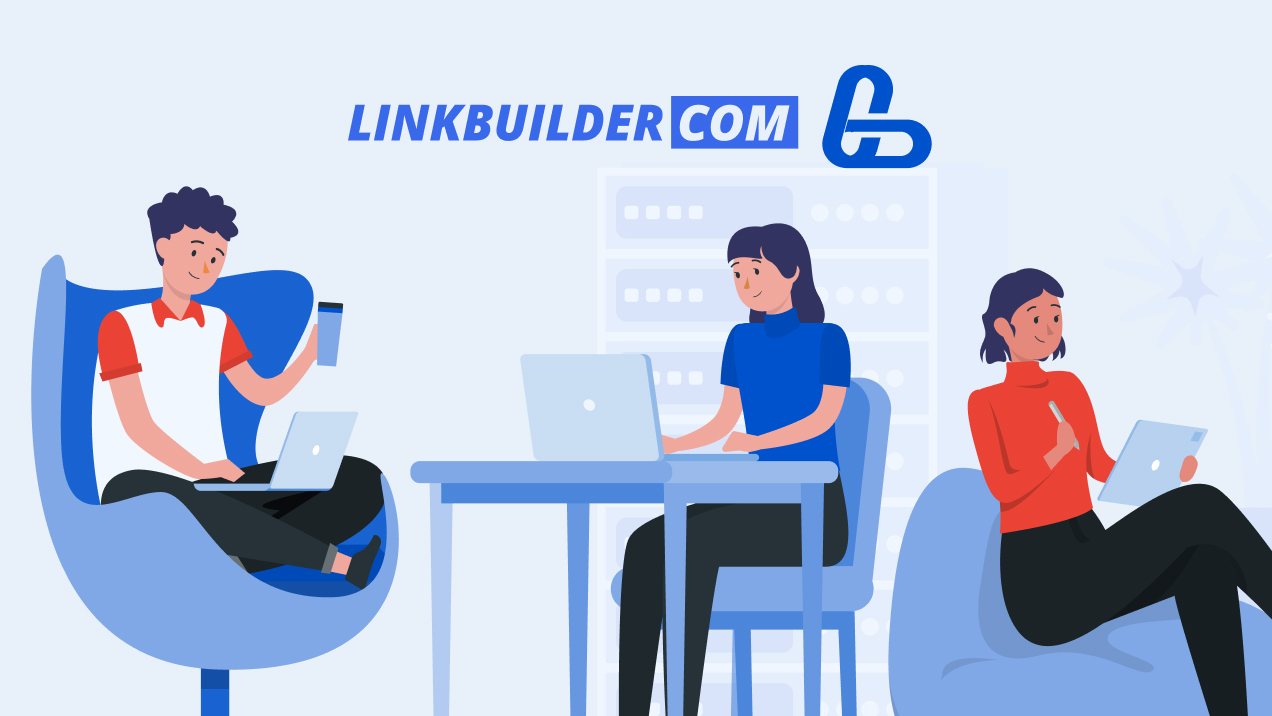
Placing contextual links requires expertise to avoid search engine penalties.
At LinkBuilder.com, we ensure safe, practical link placements that comply with SEO best practices.
Our team carefully selects high-quality resources so that every link contributes to your site's growth, visibility, and organic traffic.
Trust our professionals to maximize your SEO success without risk.
- Customer-Focused Approach
We tailor our strategies to meet your unique needs. Before placing a contextual link, we provide full transparency, allowing you to review and approve the site. Our process ensures that each link placement aligns with your goals, guaranteeing high-quality and effective results.
- Seamless Integration into Relevant Content
Contextual links perform best when they naturally blend into high-quality content relevant to your niche. We prioritize strategic placement to ensure your links provide value to both users and search engines. This method enhances search rankings while improving the user experience, making your brand more visible and authoritative.
- More Than Just Link Placement – A Strategic SEO Advantage
Working with LinkBuilder.com means more than just acquiring backlinks; it’s about establishing your brand’s authority and recognition online. Each link we place serves as a touchpoint with your audience, reinforcing your credibility and driving long-term success. We focus on sustainable strategies that enhance both search visibility and brand awareness.
- Personalized SEO Solutions for Maximum Impact
Every business is unique, so we offer fully customized link-building strategies. Whether you need dofollow or nofollow links, specific site niches, or tailored content formats, our solutions are designed to achieve your goals. This flexible approach ensures that your brand stands out from competitors and maximizes its SEO potential.
- Guaranteed Results for Your Investment
At LinkBuilder.com, we don’t just aim for results - we guarantee them. Our forced indexing methods ensure search engines properly recognize your links, delivering a lasting impact. We are committed to completing every project successfully, ensuring your investment in SEO yields maximum returns.
- Permanent Link Placements & Secure Guarantees
- Links remain live indefinitely
- Placement guarantee: 30 days
- Money-back guarantee: 30 days
Learn More About Our Pricing & Plans
We offer flexible plans to suit businesses of all sizes. Whether you're a small business or an enterprise, our website provides detailed information about our plans and pricing.
Visit LinkBuilder.com to explore the best solution for your needs.
Easy Access to Paid Guest Post Platforms
At LinkBuilder.com, we simplify the process of purchasing contextual links.
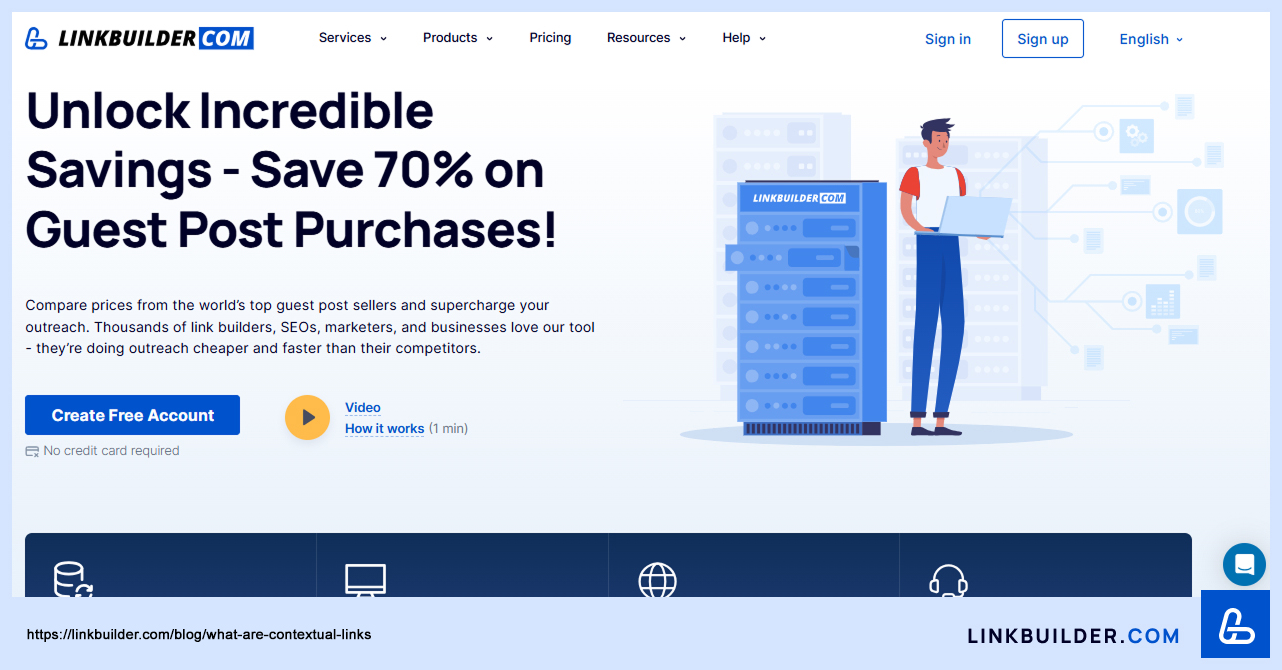
If you prefer to buy links directly, you can access our Sponsored Content Finder.
This tool helps you find resources where you can publish guest posts that include contextual links. The process works as follows: you write a new article from scratch and embed a contextual link within it. To place contextual links using this tool, you need to:
- Find a website that meets your requirements.
- Navigate to the resource page where placements for that site are sold.
- Check with the seller to confirm whether they accept guest posts that contain contextual links.
If you prefer a hands-off approach, our team can assist you throughout the process; from selecting relevant sites to negotiating placements and ensuring your contextual links are seamlessly integrated into high-quality content.
If you're ready to enhance your SEO strategy with high-quality, expertly placed contextual links, LinkBuilder.com is your trusted partner. Our proven methods ensure that every link boosts your site's authority, rankings, and visibility. Choose a plan that fits your needs and start seeing the results today!







